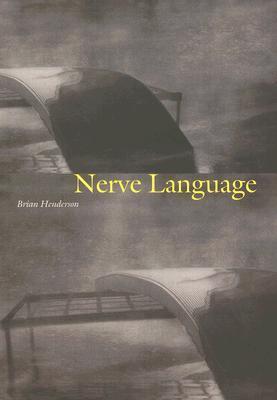I bought this book about seven years ago for a course on Canadian poetry. I remember writing my final paper on it after reading Daniel Paul Schreber's Memoirs of my Nervous Illness...partly because I liked Never Language more than our other required readings, and partly because requesting Memoirs through interlibrary loans gave me an excuse to ask for an extension on the project. I still have my essay somewhere...that, and the re-living of my university days are the only reasons why I'm not getting rid of this book.
First off: Schreber. A schizophrenic German man whose memoirs were studied by psychologists, most notably Freud. He was obsessed with "nerves" and "rays" which he perceived as God's way of communicating with him. He also had some gender issues which I'm not going to try to define, but sometimes he wanted to be a woman and sometimes he wanted to desex himself.
Apparently there was a movie based on the Memoirs released in 2006, which may have been Henderson's inspiration for Never Language. I remember not feeling like he really did justice to Schreber's Memoirs, however, it's still an interesting idea for a poetic project. I'm not sure if I condone appropriating the identity of a mentally ill man, but Henderson deals with it in a (mostly) tactful way. There is a lot of pathos in the contrast between how Schreber is treated at the asylum and his longing for freedom.
The poetry itself is mediocre. Henderson steals and overuses certain words from Memoirs, like "rays," "nerves," "God," and "voluptuousness." The poems are repetitive. The ideas don't seem to flow logically either, so...I guess, good job on the "appearing mentally ill" theme, but it isn't enjoyable to read. There's also a ton of rhetorical questions, which is one of my pet peeves. They work effectively in a few places, but most of the time I just rolled my eyes at the pathetic attempts to appear profound.
Poems that I liked:
"Innocence is the Weakest Defence," "The Play-with-Human Beings," "Representing Questions," "Wall, Corridor, Balcony, Door," "Sabine: Accommodation," "For My Mother."
=6/56 (10.7%) poems that I liked.

